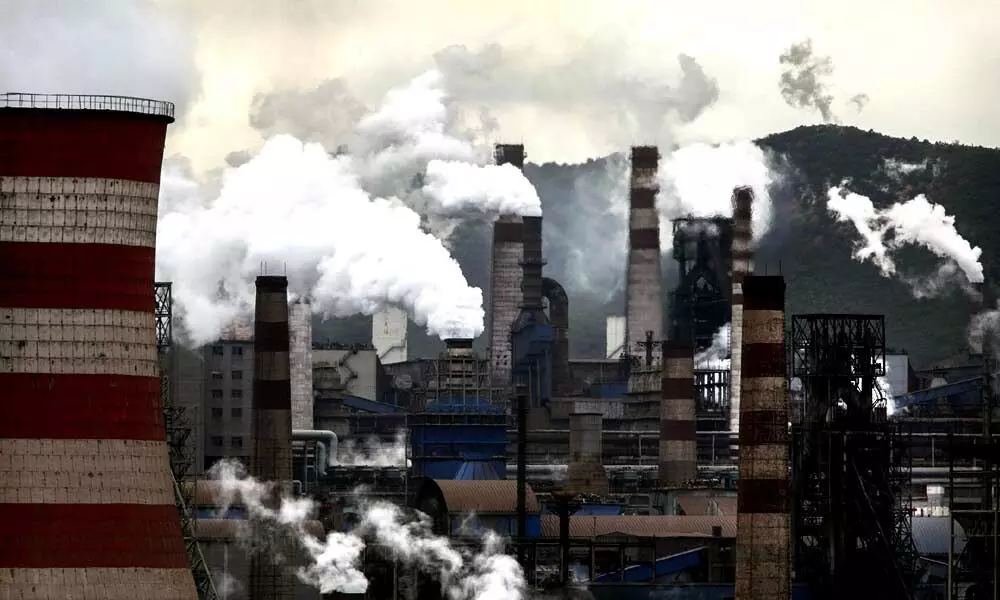Joe Biden's aggressive climate plan puts pressure on India, China
An ambitious pledge to cut greenhouse-gas emissions under consideration by the US gives President Joe Biden more leverage when he hosts leaders for a climate change summit later this month - presenting a particular challenge to China’s Xi Jinping.
image for illustrative purpose

An ambitious pledge to cut greenhouse-gas emissions under consideration by the US gives President Joe Biden more leverage when he hosts leaders for a climate change summit later this month - presenting a particular challenge to China's Xi Jinping.
The White House may commit to emissions cuts of 50 per cent or more from 2005 levels by 2030, Bloomberg reported last week. Officials are looking at opportunities across the federal government on standard-setting, clean energy investments and resilient infrastructure plans, according to people familiar with the deliberations.
It's uncertain whether the US can actually deliver on such a bold plan, but the indication that Biden is willing to significantly up the ante on emissions targets may put pressure on China, which has already tried to position itself as a leader in reducing greenhouse gases. The US administration is fashioning the aggressive target as it seeks to rebuild trust with nations wary after former President Donald Trump withdrew from the Paris agreement and dismantled domestic policies key to driving the country's promised emissions cuts.
At stake is the ability to create standards and develop equipment and technologies that will be used for decades to transition the global economy away from fossil fuels with advances in everything from renewables to electric vehicles to greener steelmaking.
"You can cancel regulation, but you can't erase technological advances," said Lauri Myllyvirta, lead analyst with Centre for Research on Energy and Clean Air. "Hopefully the US domestic plans will be followed by ambitious programs to invest in the low-carbon transition in emerging countries."
Tackling climate change has been an effective foreign policy tool for Xi since he became China's president in 2013. He and former President Barack Obama worked out a bilateral emissions agreement in 2014 that helped pave the way for the 2015 Paris climate pact. When Trump's administration left that, Xi began to assert more of a global leadership role in the area.
Xi last year announced that China would reach net-zero emissions by 2060. His policies have also led China to a world-leading role in manufacturing solar panels, wind turbines and electric vehicles.
Also hanging in the balance may be the shape of India's energy transition. The world's third-biggest polluter has yet to publicly commit to a pathway toward net zero emissions. During the summit, Biden is likely to press for a commitment from Prime Minister Narendra Modi, who may seek to tie a pledge to energy transition aid, according to BloombergNEF analyst Ali Izadi-Najafabadi. Here's a look at how other Asian countries attending the April 22-23 event may be impacted by a larger US climate pledge, according to Izadi-Najafabadi:
Japan: Prime Minister Yoshihide Suga may formally announce new emissions targets. The country is planning to set a 2030 target to reduce greenhouse gas emissions by 45 per cent compared with 2013 levels, the Mainichi newspaper reported last week, citing an unidentified government official. The country's industry minister said those numbers weren't accurate, Reuters reported. (Bloomberg)
Aaron Clark & Dan Murtaugh

